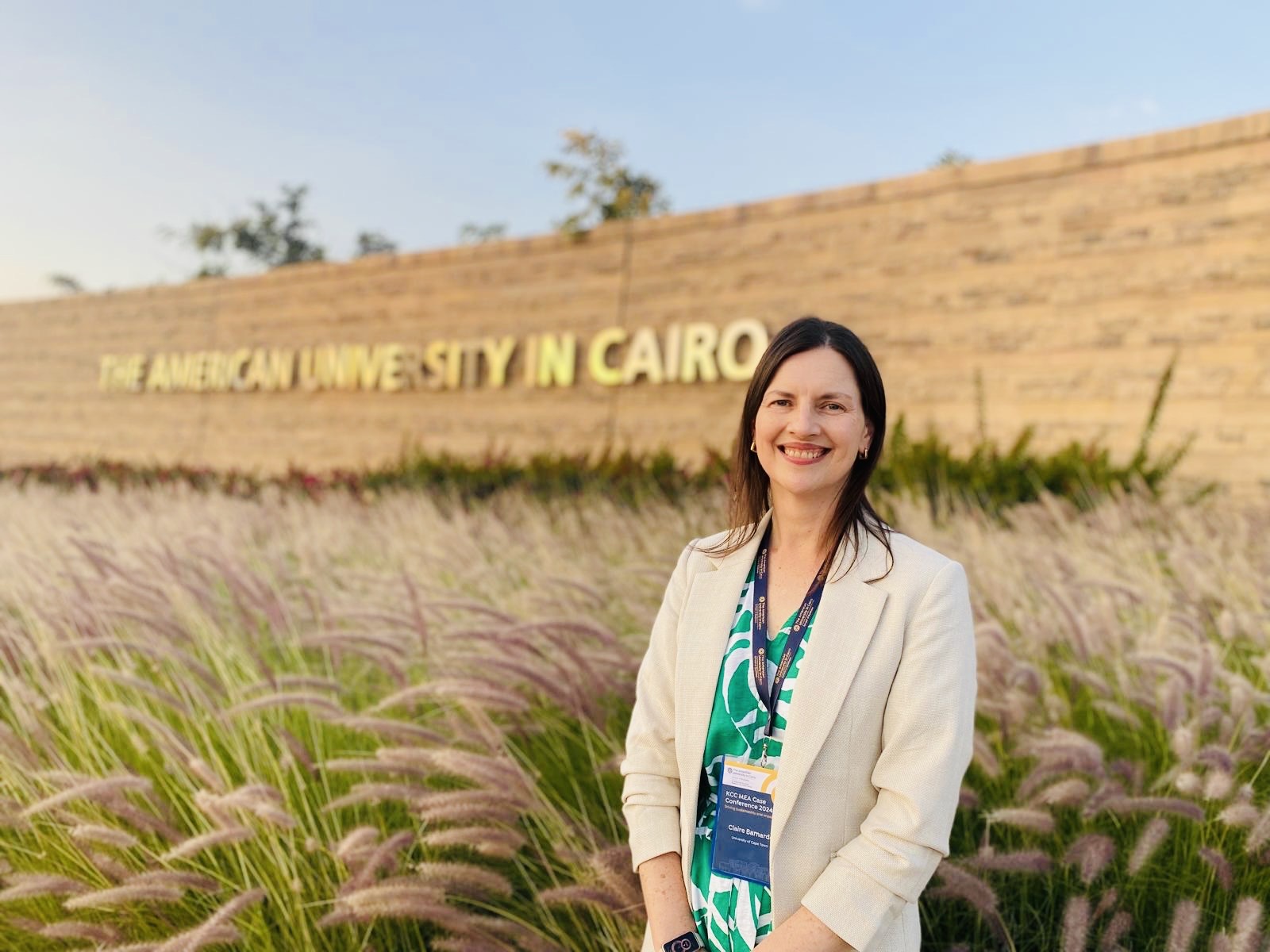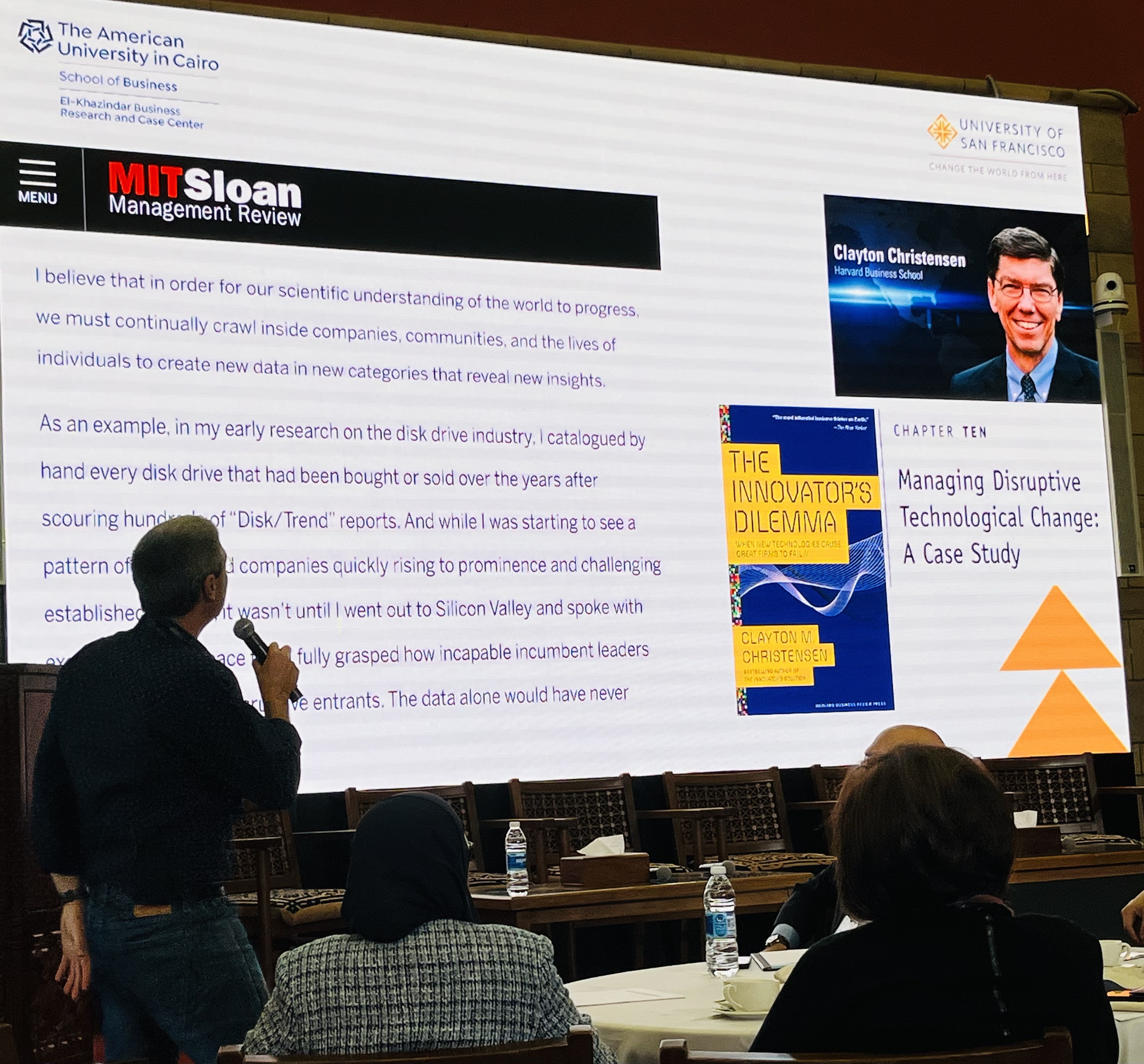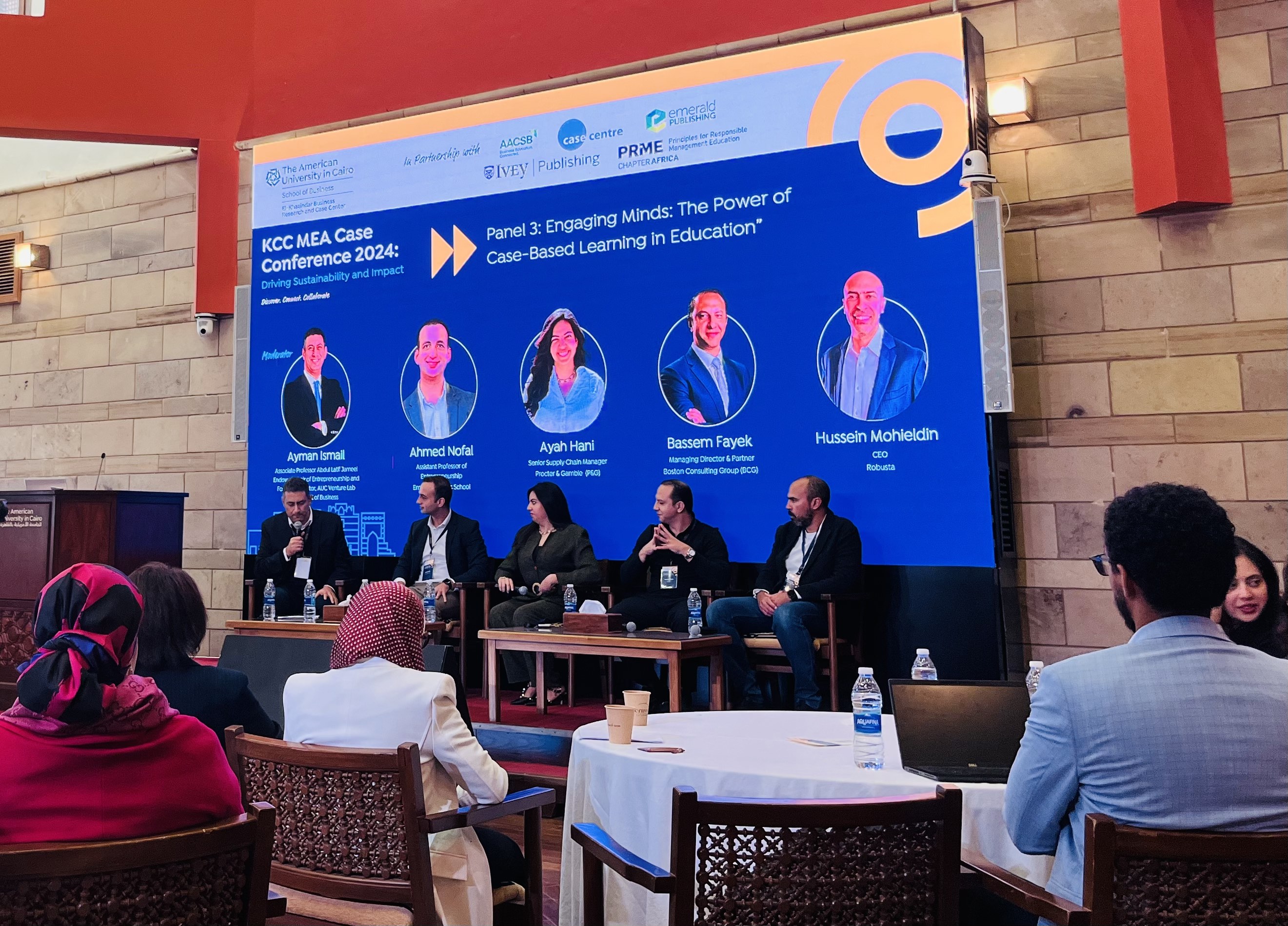
The inaugural KCC MEA Case Conference 2024 was hosted by the El-Khazindar Business Research and Case Center at the American University in Cairo Onsi Sawiris School of Business in December 2024. The theme was “Driving Sustainability and Impact” and it brought together faculty, case experts, publishers, case writers, and researchers from across the globe. The GSB’s CWC took part in the two-day conference, which boasted a range of stakeholders and perspectives in a dynamic exploration of topics from multiple panels and voices. We left with many key takeaways from the conference; here are just a few of the highlights.

“Double impact” through case research
The keynote speech “Making and demonstrating a real impact of case research” was presented by Michael Goldman, Professor and Associate Dean of Graduate Programs and Strategic Initiatives at the University of San Francisco. He presented a thought-provoking address, beginning it in true case method style and engaging with the audience directly. Goldman raised awareness around how faculty can create “double impact” by also using academic research as the groundwork for cases. External to this was the bigger question of how faculty are recognised for case research and the conclusion that case output within an institution needs revisiting. Recognition and incentives for producing cases can be crucial in building case research among faculty. One of the most prominent, positive developments in this regard is how some accreditation boards, like AACSB International, are starting to appreciate the valuable impact that cases create in their accreditations. This feeds back into the loop of creating more interest from faculty in case research. It is a positive development and hopefully additional accreditation bodies will review case research’s impact.
AI in case research: a controversial tool
Dr Scott Andrews, Head of Worcester Business School, Principal Lecturer in Leadership, delved into the relevant and tricky subject of “Innovating Case Writing with AI”. He challenged delegates to consider the role of AI with cases and the fast pace at which it is evolving. Responses from the delegates were mixed in relation to the usage of AI in case writing. Some delegates view the value of AI in the initial research around an industry and company as positive and efficient. It can be easily achieved with the right prompts in ChatGPT and saves large amounts of time in terms of compiling information that AI can pull together seamlessly and in an instant. However, there were some of the delegates that did not agree that this was the right way to go. They felt that using AI for case research negates the selection process of the case writer in terms of what information to include or exclude. Another issue is whether the data is reliable and correct in terms of statistics especially for African countries. Numbers can vary greatly depending on where the information is sourced and reports often differ, especially in the Global South. This means that figures need double-checking and corroborating across more than a few sources. Publishers at the conference also had mixed responses as to whether or not AI could be used in case writing and research. A few publishers have begun to create regulation around the use of AI, issuing statements of use. Whereas other publishers have drawn a hard line by not allowing it at all. Going forward, AI will be a topic requiring deeper consideration from case writers and publishers alike.

Case centres as hubs of impact
The conference also offered a broad range of valuable panels that explored topics like “Bridging Academia and Industry”, “The Art of Publishing”, as well as “Engaging Minds: The Power of Case-Based Learning in Education”. GSB Case Writing Centre Manager, Claire Barnardo, spoke alongside the final panelists about “Case Centers Leading the Way: Driving Educational Impact in the MEA”. Facilitated by Engy Magdy, Director of the KCC Team, the panel brought together Prof Albert Wöcke (The Case Study Hub, Gordon Institute of Business Science), Dr David Mathuva (Strathmore Africa Case Centre, Strathmore University), Imane El Ghazali (Africa Case Lab Director, ESCE Ecole de Management), and Dr Randa Salamoun (The Case Hub Director, Olayan School of Business). The discussion centred around what is currently being done across Africa in terms of growing and developing the case method and local business cases. The panel considered the crucial role of case centres, the challenges and the opportunities to build cases that are relevant to Africa, as well as the next steps in achieving more impact through working together.
“Teaching cases are a unique and impactful tool. Africa has the largest number of social entrepreneurs in the world. By telling the stories of local entrepreneurs and the lessons in how doing business here is different, we are in fact exporting learnings from Africa and sharing real-life examples with other entrepreneurs. This creates a ripple effect. In this way, cases are an incredible catalyst for sustainability and social impact,” said Barnardo.
This inaugural case conference highlighted the work that is being done to create more cases from Africa. It also brought different corners of the case community together, which fostered collaborative efforts and set the tone for working together in the future.
The UCT GSB Case Writing Centre boasts 80 traditional teaching cases and a new open-source, multimedia case series Doing Business in Africa (DBIA).










